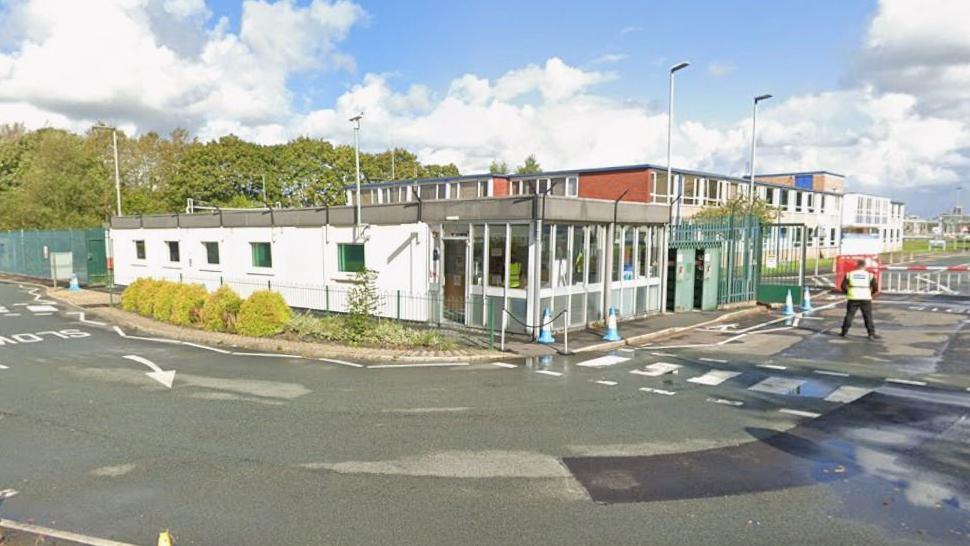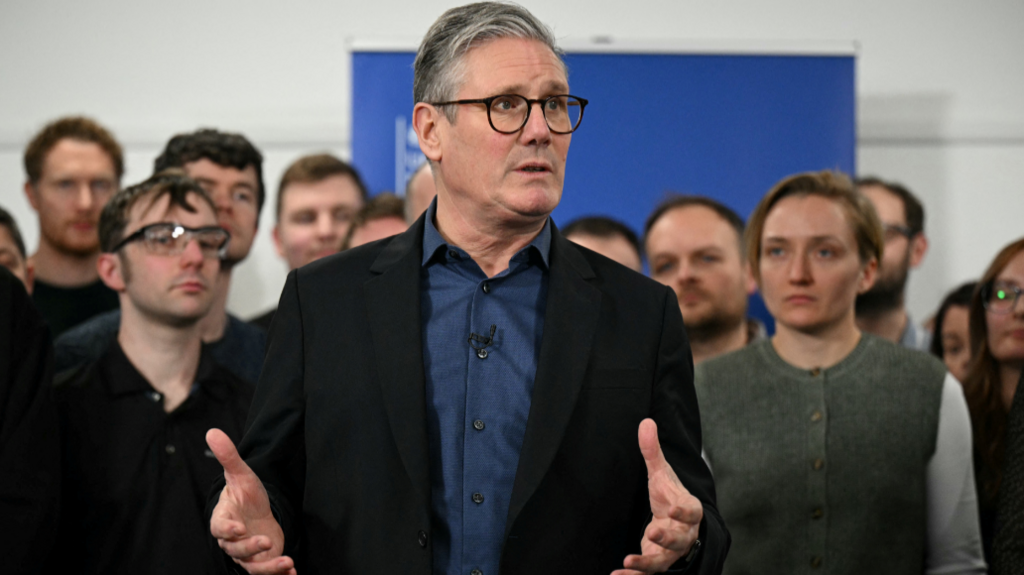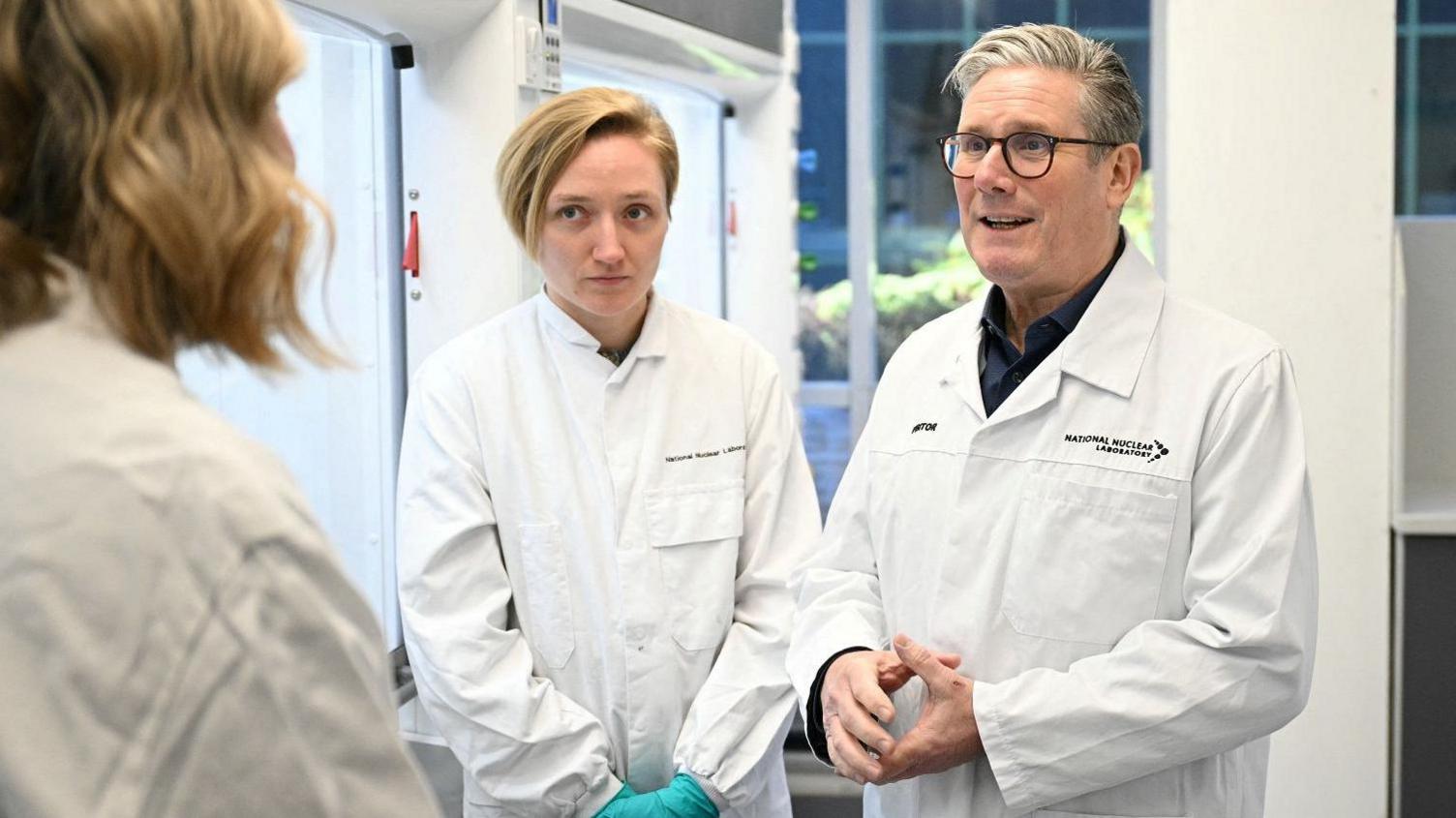Recycled nuclear fuel to be used in cancer therapy

The government's science agency has been awarded £9.9m to produce cutting-edge cancer treatments
- Published
Nuclear fuel used to power homes is set to be recycled to help develop life-saving therapies for hard-to-treat cancers in a pioneering new project.
The UK National Nuclear Laboratory (UKNNL) in Salwick, Preston, and Medicines Discovery Catapult, have been awarded £9.9m by the government to produce cutting-edge treatments that have fewer side effects.
The process involves harvesting nuclear material that has been used to power homes, which is then recycled to provide radiation therapy that targets cancer cells with minimal damage to healthy tissue.
Science and Technology Secretary Liz Kendall hopes Targeted Alpha Therapy "could give cancer patients more priceless time with their loved ones".
The UKNNL said the amount of spent nuclear fuel available in the UK means the specialist treatment could benefit thousands of patients nationwide and help position the UK as "a leader in precision cancer medicines".
A tiny amount of the fuel known as lead-212 is extracted through a series of chemical reactions, equivalent to taking a single drop of water from an Olympic-sized swimming pool.
An even smaller amount of lead-212 - a radionuclide - is then taken from that sample, which, when developed under the right conditions by scientists could treat thousands of individuals.
Radionuclides are already used worldwide for medical scans to diagnose cancer and other conditions.
Julianne Antrobus, UKNNL chief executive, said: "Through access to the UK's sovereign supply of lead-212, we have a truly unique opportunity to transform our nuclear expertise into life-saving cancer treatments.
"By developing the infrastructure and processes... we're not only advancing precision nuclear medicine but also reinforcing the UK's position as a world leader in both nuclear science and healthcare innovation.
"This investment will help us deliver treatments that could transform outcomes for patients with previously untreatable cancers, both here in the UK and globally."
The government is investing £9.9m from the Innovate UK Sustainable Medicines Manufacturing Innovation Programme, while industry will plough in a further £8.9m.
Kendall added: "Almost 3.5 million people in the UK are living with cancer but scientific breakthroughs are giving hope to more of them and their families.
"It's incredible to think we could turn used nuclear fuel into cutting-edge cancer treatments but that is exactly what British scientific brilliance is making possible."
Get in touch
Tell us which stories we should cover in Lancashire
Listen to the best of BBC Radio Lancashire on Sounds and follow BBC Lancashire on Facebook, external, X, external and Instagram, external. You can also send story ideas via Whatsapp to 0808 100 2230.
Related topics
- Published6 February

- Published6 February
